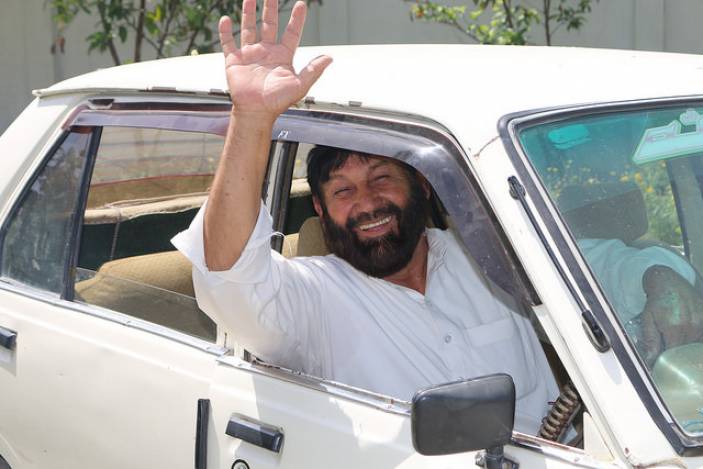 Zar Jan is a 68-year-old man from Orakzai, a fertile valley in the mountains of Waziristan in north-west Pakistan. Until a few years ago, he lived happily with his wife and children in their village, earning a living through farming.
Zar Jan is a 68-year-old man from Orakzai, a fertile valley in the mountains of Waziristan in north-west Pakistan. Until a few years ago, he lived happily with his wife and children in their village, earning a living through farming.
But due to unrest in his area, Zar Jan and his family moved to Peshawar, the provincial capital. With the little money he had, he started a taxi service. But after some time, he realised he could not see properly. The doctor told him he had cataracts. Zar Jan unfortunately could not afford the treatment, so he had to give up his car and his taxi business and start working as a daily wage labourer. This proved insecure and dangerous, and with money short and his health poor, he and his family were suffering.
In 2017, HelpAge Pakistan supported Zar Jan to get cataract surgery. His eyesight was restored and he could resume driving his taxi again. He and his family are happy that they can bring in a decent income again.
Zar Jan is one of 20,000 people who have been supported by HelpAge Pakistan through a humanitarian response project to address the needs of the most vulnerable temporarily-displaced people in Khyber Pakhtunkhwa and the Federally Administered Tribal Areas.
A comprehensive health support program helped around 18,000 people, including 7,800 women, with essential healthcare. Eleven eye-screening camps served 5,680 people (2,950 women) to check for diseases, provide medicine and give out glasses. Zar Jan was one of the 416 people who benefited from cataract surgery, which is crucial to help restore vision and prevent blindness.
More than 1,500 women and men with disabilities were provided assistive devices and physiotherapy services to give them independence and help them live with dignity. Before receiving this support, the majority of these people with disabilities were confined to their beds and living a life in isolation.
Fanoos Bibi, a 55-year-old woman, said: “I wanted to buy a wheelchair, but I could not afford it. When I had to go to the hospital, my family used to lift me in my bed. I didn’t feel good, but now with the help of this wheelchair, I feel more comfortable as I can move around and my family does not have to lift me.”
More than 2,500 women and men were given cash and enterprise training in areas such as livestock rearing and setting up a small home-based business. Preference was given to the most vulnerable households, including those headed by older people, widows, separated women, orphans and people with disabilities.
Through our work in north-west Pakistan, HelpAge has demonstrated our commitment to age and disability-inclusive emergency responses, and we provide further assistance to government agencies, NGOs and community groups to make sure their work is inclusive too.
Find out more about HelpAge’s work in Pakistan.
The project in Pakistan was funded by German Foreign Ministry through HelpAge Germany and implemented for two years from April 2016 to May 2018, and a second phase of the project has already started.
